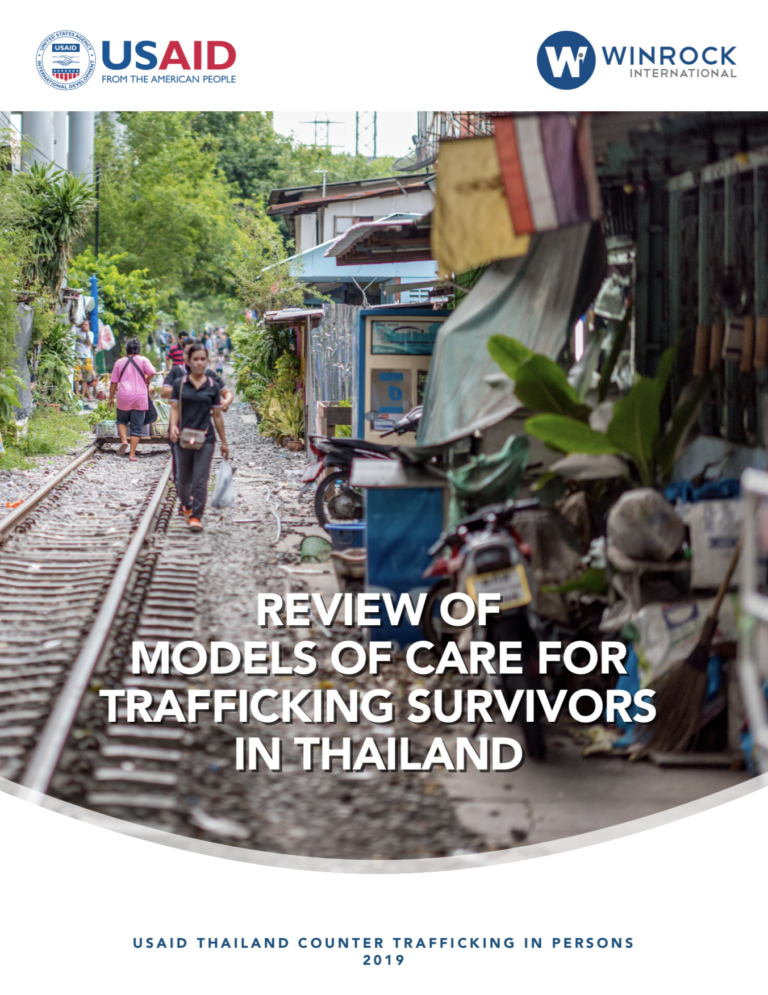As a country of origin, destination, and transit for forced labour and human trafficking, Thailand has been expanding its efforts to offer shelter and assistance to both Thai and foreign citizens, however, some gaps remain. Using international standards and good practices as benchmarks for quality of assistance, the study reviews victim care models in Thailand and elsewhere and provides recommendations on how to make assistance more responsive to the survivors’ needs.
This report summarizes the findings of a Review of Models of Care for Trafficking Survivors that was completed by Winrock International (Winrock) in 2018-2019 under the United States Agency for International Development’s Thailand Counter Trafficking-in-Persons project. The research aimed to compare models of care available to trafficked persons (men, women, girls and boys, and lesbian, gay, bisexual, transgender, queer, and intersex [LGBTQI] people) in Thailand, and assess their relative effectiveness in victim recovery. The study also explored models used elsewhere that could be adapted to the Thailand context. The report uses international standards, regional obligations, and good practices as benchmarks for quality of assistance. It provides recommendations to be considered by the Royal Thai Government (RTG), particularly the Ministry of Social Development and Human Security (MSDHS), and local non-governmental organizations (NGOs) as they strive to make assistance more responsive to survivors’ needs.

